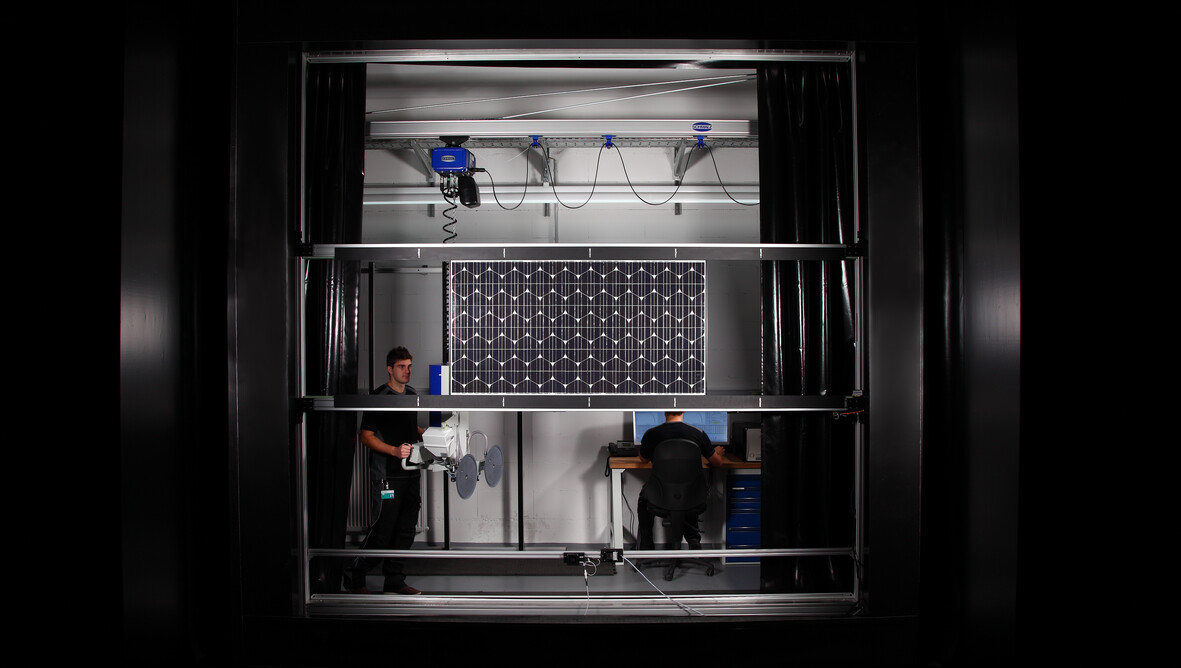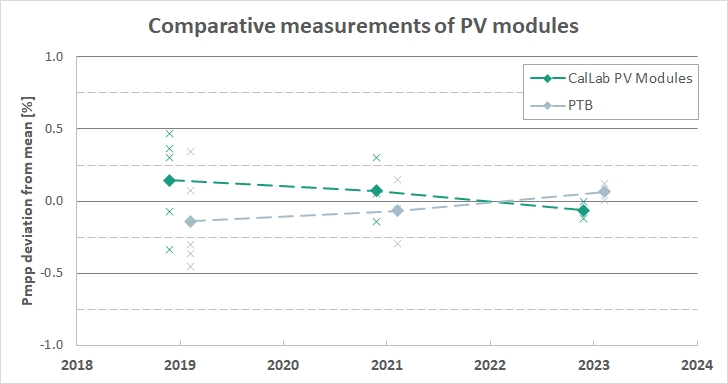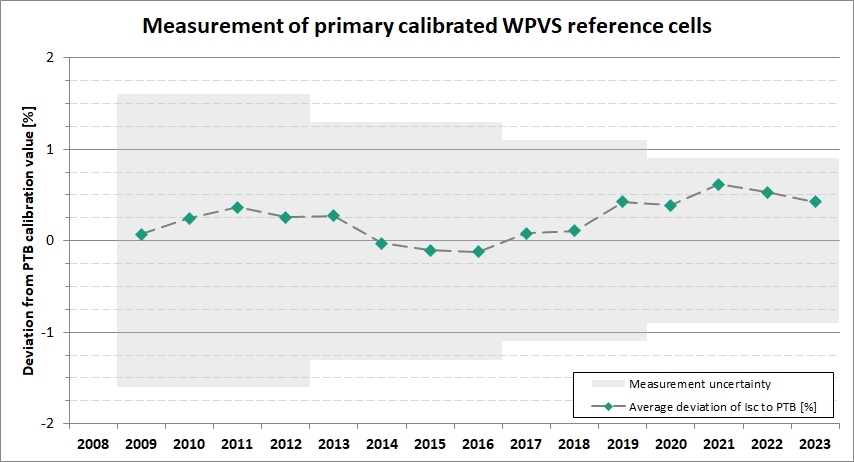Press Release #32
PV module measurement results from Fraunhofer ISE and the German National Metrology Institute (PTB) show high level of agreement
Photovoltaic module manufacturers use modules measured by third parties as a reference when determining the output of individual modules in their production line. To select the right PV modules, developers of PV power plants rely on precise, independent output measurements to inspect the quality of the modules they purchased and to make accurate yield forecastings. For this purpose, the accredited calibration laboratory CalLab PV Modules of Fraunhofer Institute for Solar Energy Systems ISE and the National Metrology Institute of Germany (Physikalisch-Technische Bundesanstalt, PTB) regularly compare their measurement results. This allows them to continuously improve their accuracy, ensuring that all stakeholders in the PV industry can rely on their independent measurements. The result of their most recent comparison: Once again, the results they produced were nearly identical, with the respective measured outputs (Pmpp) deviating less than half a percent from each other.

“Our comparisons in the area of PV modules and reference cells confirm an outstanding level of accuracy and are essential to guarantee and maintain our calibration standard at a constant level. We are proud of our vast measurement history, and our great and close cooperation with the PTB. The National Metrology Institute is our most important partner when it comes to reliability and metrological traceability,” explains Martin Kaiser, head of CalLab PV Modules at Fraunhofer ISE. “Our comparisons give our project partners the necessary transparency they need to trust the calibration standard of CalLab PV Modules, which has been stable for years.”

In our most recent PV module comparison, our results proved to be nearly identical, with the respective measured outputs (Pmpp) deviating less than half a percent from each other (Figure A). With this, CalLab PV Modules proves the long-standing stability of its calibration standard: Since 2008, the mean measurement error of the PTB’s primary references (World PV Scale reference cells) is less than half a percent (Figure B).
“As national metrology institute, our mission is to cooperate with calibration laboratories such as Fraunhofer ISE to provide solar market stakeholders an objective and transparent calibration chain with the lowest possible measurement uncertainties,” says Dr. Stefan Riechelmann, head of the working group Solar Modules at the PTB.

Regular round robin tests are among the most important forms of evidence for quality assurance of accredited test and calibration laboratories. For this reason, the PTB and Fraunhofer ISE have been conducting measurement campaigns for many years to ensure quality and to test the calibration standard at the level of solar cells and PV modules. The comparison requires both institutions to independently measure the same PV modules and solar cells under standard test conditions and to compare the results. The participating teams inspect the measurement object for defects in advance to ensure that the selected solar cells and PV modules are suitable.
Both institutes are planning to expand their cooperation to include more methods such as measuring the solar module’s spectral response. They also intend to complement the range of measurements by more module technologies.
About the National Metrology Institute of Germany (PTB)
As the German national metrology institute, the PTB is the highest authority for various measurands in Germany. As the second largest metrology institute in the world, it is internationally renowned for its research in the fields of measuring units and precise measuring. It is a service provider for science, industry and society, as all these areas require reliable measurements. It advises the German federal government in all measurement-related affairs. It is a departmental research institution and higher federal authority within the portfolio of the German Federal Ministry for Economic Affairs and Climate Action.
Contact for further information:
Dr. Stefan Riechelmann, Dr. Hendrik Sträter, Dr. Ingo Kröger
Phone +49 531 592-0, E-Mail: Stefan.Riechelmann@ptb.de
Last modified: